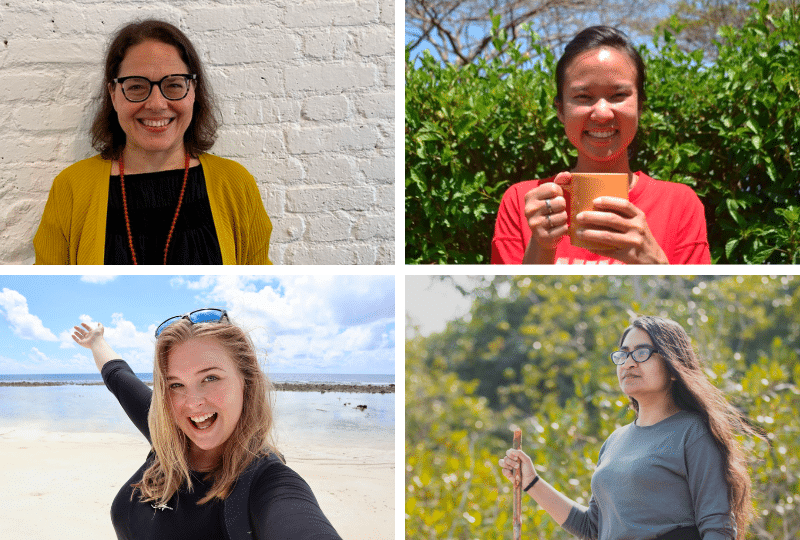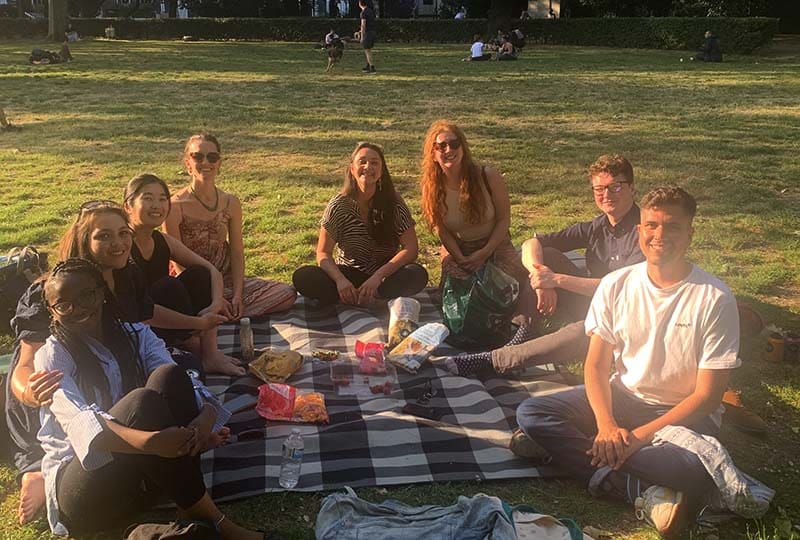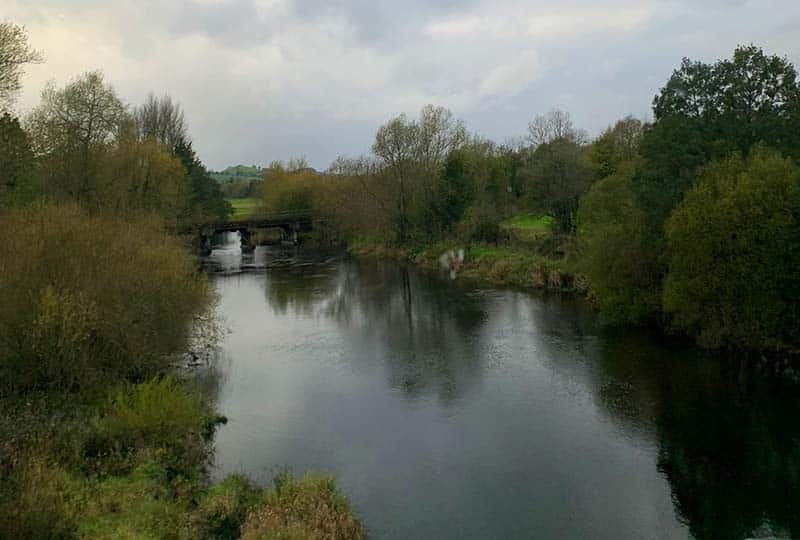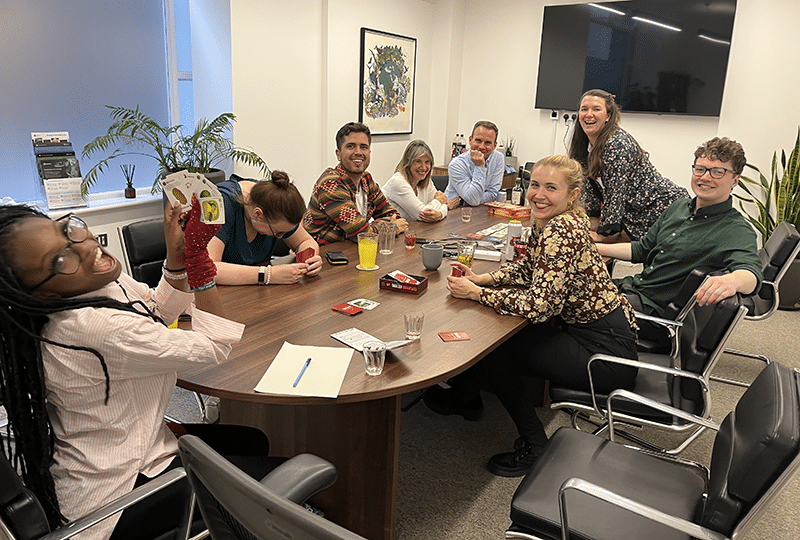
Five takeaways from my conservation internship
“I never thought I’d ever have a role in the environmental sector, but now I have a range of new skills and a much greater understanding of the state of the natural world.”
Jessica Birabil came to Synchronicity Earth originally on a paid two-week work experience placement through our partner Voyage Youth. Her enthusiasm to learn and interest in how her growing skills could be used to counter the biodiversity crisis led to her being offered an extended internship in the Communications team.
As Jessica prepares for her law degree to begin this September, she reflects on what she has learned from her time working in wildlife conservation.
This story was originally published on Synchronicity Earth’s blog.
I never realised how endangered biodiversity is around the world. Not that I had thought birds, mammals, amphibians, fish, and deep-sea creatures were high in numbers, but it never occurred to me how many types of species, on land, inland waters, and the ocean, are in danger of extinction.
My journey in conservation began in August 2022 through Voyage Youth, a social justice charity based in Hackney that aims to empower young black people and help them reach their full potential, which was offering two-week paid summer work experience placements.
Seeing Synchronicity Earth as one of the options, I felt inclined to try something new in a field that’s all around me—nature conservation. This placement was then extended into a nine-month internship.
As my gap year is now coming to an end, I’ll be starting a new chapter studying Law at City University of London come September.
Taking on different skills

One of my first tasks when I started the internship was to publish a write-up of a webinar featuring four incredible marine conservationists: Our connection with the ocean.
I began my initial placement with a foot in every team. I was given the opportunity to explore operating systems; learn about finance and due diligence; and research various potential partner organisations.
With a good balance of tasks and training sessions, I already began feeling like a member of the team rather than just a young person on a placement. I began to understand how different roles and skills within the organisation piece together for effective support to the organisation’s global partners.
I also found out that I have an affinity for communications.
Communications is the first step to creating any type of action, either locally or globally, because with issues such as the biodiversity crisis, if we can’t communicate them, how will people know or care about them?
By telling people not only about the threats, but also the solutions, people don’t have to feel helpless when it comes to conservation. It is crucial to convey messages of hope, so people care and want to act to save a species. Once anxious about using social media such as Instagram and Twitter, I learned how to adapt messages for different audiences, experimenting to find out what works best to engage them.
Being able to delve into different partner stories and projects around the world whilst sitting at my desk was really rewarding. Working in Communications, you become a filter, learning about the partner organisations, picking out the most interesting stories, and creating a window for everyone outside the organisation to see what our partners are doing on the ground.
Affirming my place outside my comfort zone

I really enjoyed spending time with the team, not just in the office but also at team socials and informal get-togethers.
Before Synchronicity Earth, I had worked as a youth leadership coordinator at Voyage Youth, so office environments were not new to me. But here, I was one of the few people from a BAME background and the youngest person on the team.
Ethnic diversity is hugely under-represented in the environment sector. The findings from last year’s RACE Report, using data from 94 environmental charities, trusts and foundations, was that the proportion of staff and trustees who identify as a person of colour and are part of racially or ethnically marginalised groups is only 7% (this figure is 14% for the UK population aged 16-64 in employment, according to the Office for National Statistics).
There are various reasons why young people like me might not know very much about the environment sector, or find it hard to access these roles (see these learnings from the Race for Nature’s Recovery programme).
However, being one of or the only one from a BAME background in spaces like these boosted my self-confidence and my belief that I can thrive in any environment.
Expectations of me were made clear, and I believe I was able to thrive in all areas as I knew what was needed of me. I was free to get on with my tasks independently, and confidently ask for help where needed. For example, when I recognised some technical issues on the website, I was able to contact external digital support to fix it. Given that independence and trust to raise a technical issue externally really boosted my self-confidence that I can properly express myself to solve an issue.
My advice to people looking to gain experience is to actively search for any role within an environmental charity (you never know what you might be good at!) and be willing to learn.
Learning about the state of the natural world

After learning so much about inland waters through the Freshwater Programme, I’ll never look at rivers the same again.
I always sought green spaces to refresh my mental state of mind. Seeing different landscapes is fascinating to me and I was always encouraged to go on walks in my breaks.
We also started watching the BBC documentary Wild Isles every week on Monday lunchtimes, and I was able to imagine what life is like as a certain animal or plant, and the types of challenges they must overcome to survive.
Before starting my placement, I hadn’t understood the scale of the biodiversity crisis. But not only did I learn about the problems, but through writing about Synchronicity Earth’s partners, I was learning about the solutions, and I was so inspired by the hundreds of people working to save the world’s biodiversity, down to the rarest and most unique species.
Probably one of the last things I would ever have thought about a year ago is rivers. I didn’t know how important they are for wildlife, or just how much our treatment of them is affecting communities that depend on them.
I certainly had never considered that they should be treated as living entities. But I became more empathetic after reading a blog on recognising the rights of our rivers and seeing how people who are dependent on these rivers are severely affected by their mistreatment.
Preparing for my degree

My leaving do featured pizza, board games, and a healthy helping of competitive spirit.
As my internship comes to an end, I’m starting to reflect on how my time at Synchronicity Earth has prepared me for my Law degree.
Over the past nine months, I’ve taken on many new skills that I would never have expected I would be good at. I have learned how to use new software such as Canva, Adobe Photoshop, and InDesign.
Though there may not be any opportunities to use these for my law degree, I have confidence in my creativity, and my ability to think outside the box and be able to generate ideas, including solving any problems.
By managing the Partners section of the website, I’ve had to use our Salesforce database, do online research, and write about many different organisations, preparing me for the kind of independent learning I will need when studying for my degree.
I really appreciated the support I received from my team and how I was always kept in mind for developmental opportunities. Because of my interest in law, I was given the chance to follow environmental law cases such as the fight to protect Ghana’s Atewa Forest, protecting its biodiversity and water sources from destructive mining.
My manager gave me a book called In Black and White by Alexandra Wilson, which provided insight into the life of a young, black, female barrister and her career. As I’m still figuring out which path I’d like my career to take, it was useful to read the experiences of someone who is like me exploring this new field.
I would like to thank Synchronicity Earth for offering me this experience and I can’t wait to see where it takes me!
Author Profile | Jessie Birabil
Interviews, Early Years, Celebrating Diversity in Conservation


 Jessie has just finished studying A-Levels in English Language and Literature, Sociology, and Geography. After completing a 2-week summer placement through VOYAGE Youth, she secured a role as a Communications Intern in October 2022. Jessie is keen on gaining more knowledge and experience in the environmental sector. She is open to developing an interest in environmental law and exploring how rivers can gain protection and legal rights. Jessie wishes to contribute to the ongoing accomplishments in protecting threatened species and Indigenous communities with Synchronicity Earth.
Jessie has just finished studying A-Levels in English Language and Literature, Sociology, and Geography. After completing a 2-week summer placement through VOYAGE Youth, she secured a role as a Communications Intern in October 2022. Jessie is keen on gaining more knowledge and experience in the environmental sector. She is open to developing an interest in environmental law and exploring how rivers can gain protection and legal rights. Jessie wishes to contribute to the ongoing accomplishments in protecting threatened species and Indigenous communities with Synchronicity Earth.